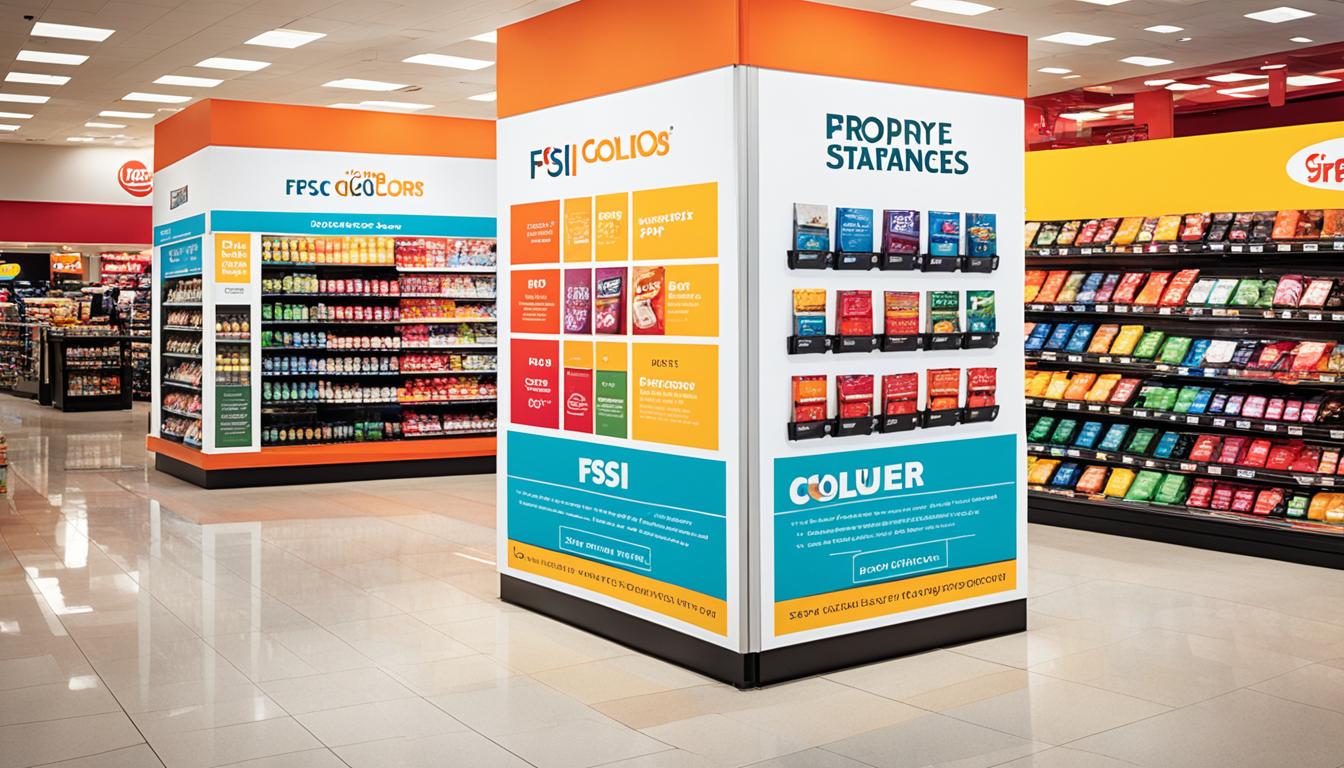Welcome to our case study on Dabur India Limited’s marketing strategy for 2024. Dabur is the largest Ayurvedic and natural healthcare company in the world, offering a wide range of herbal and Ayurvedic products. With a strong presence in the natural foods and Ayurvedic industry, Dabur has established itself as a trusted brand in the FMCG market in India. Led by CEO Mohit Malhotra, Dabur has continuously evolved its marketing approach to stay ahead of the competition and meet the changing preferences of its target audience. In this case study, we will analyze Dabur’s marketing strategy, its initiatives, and the challenges it faces in the ever-evolving market.
Key Takeaways:
- Dabur India Limited is the largest Ayurvedic and natural healthcare company globally, with over 250+ herbal and Ayurvedic products.
- Dabur’s marketing strategy focuses on community-based initiatives, print media, sales promotion, and digital-first approach.
- They emphasize on CSR efforts and position the brand as socially conscious in the market.
- Dabur faces competition from brands like Hindustan Unilever Limited, Emami, Patanjali Ayurved Limited, Himalaya Herbals, and Marico.
- Dabur continues to strengthen its brand image and market position through continuous innovation and engagement with customers.
About Dabur
Dabur India Ltd is the largest Ayurvedic and natural healthcare company in the world. Founded in 1884 by Dr. S.K. Burman, Dabur has established its headquarters in Ghaziabad, India. With a comprehensive range of products spanning hair care, oral care, health care, skin care, home care, and packaged food, Dabur has built a reputation as a trusted brand in the market. Its commitment to Ayurveda and natural healthcare has earned Dabur a market share of over Rs 80,000 crore.
Dabur India Ltd stands out as a leader in the Ayurvedic and natural healthcare industry. By harnessing the power of nature and ancient Ayurvedic wisdom, Dabur’s products offer holistic well-being to its consumers. From hair oils enriched with herbal extracts to toothpaste infused with natural ingredients, Dabur caters to the diverse needs of its customers.
With its wide range of offerings, Dabur is committed to promoting a healthy lifestyle and serving as a trusted partner on the path to wellness. The company’s dedication to quality and innovation has earned it the status of a household name, both in India and internationally.
Current News about the Brand
In recent news, Dabur India Limited, the leading Ayurvedic and natural healthcare company, has encountered a legal restraint by the Delhi High Court. The court has prohibited Dabur from selling its product “Cool King Thanda Tel” due to packaging similarities with Emami’s “Navratna Ayurvedic Oil.” This legal intervention emphasizes the importance of distinct product packaging in the competitive market.
Despite this setback, Dabur remains proactive in their marketing and promotional efforts. As raw material prices decrease, the company plans to allocate additional funds towards advertising and promotions. This strategic move aims to drive customer awareness and boost sales, resulting in increased profitability for Dabur in the fiscal year 2023.
Comparison of Dabur’s “Cool King Thanda Tel” and Emami’s “Navratna Ayurvedic Oil”
| Product | Brand | Packaging | Price |
|---|---|---|---|
| Cool King Thanda Tel | Dabur | Silver bottle with green labeling, similar to Emami’s Navratna Ayurvedic Oil packaging | $10 |
| Navratna Ayurvedic Oil | Emami | Green bottle with yellow labeling, distinctive packaging | $12 |
Buyer Persona
In order to understand Dabur’s target audience and consumer preferences, it is important to delve into the buyer persona of Sabana Yashmin. Sabana, a 22-year-old graduate from Tamil Nadu, is driven by the Ayurvedic tradition, natural and quality products, and a desire for health and wellness. Her interests span a wide range of activities, including cycling, shopping, reading blogs, listening to music/podcasts, and learning new skills. Sabana’s journey as a consumer is influenced by key pain points such as changing consumer preferences, digital transformation, consumer awareness, product imitation, and market competition.
To effectively reach Sabana and others like her, Dabur must consider the influence of social media in shaping consumer preferences. Sabana is an active user on platforms such as Instagram, Facebook, Pinterest, YouTube, LinkedIn, and WhatsApp, making Dabur’s social media presence a vital component of their marketing strategy. By leveraging these platforms, Dabur can engage with their target audience, provide valuable content related to Ayurveda and natural healthcare, and build emotional connections that resonate with Sabana’s values and interests.
To visualize the buyer persona of Sabana Yashmin, the following table provides a snapshot of her characteristics, preferences, and pain points:
| Characteristics | Preferences | Pain Points |
|---|---|---|
| Age: 22 | Ayurvedic tradition | Changing consumer preferences |
| Location: Tamil Nadu | Natural and quality products | Digital transformation |
| Interests: Cycling, shopping, reading blogs, listening to music/podcasts, learning new skills | Health and wellness | Consumer awareness |
| Social Media Presence: Active on Instagram, Facebook, Pinterest, YouTube, LinkedIn, and WhatsApp | Product imitation | |
| Market competition |
Marketing Strategy of Dabur
Dabur, the largest Ayurvedic and natural healthcare company in the world, has implemented an innovative marketing strategy to enhance consumer engagement and foster emotional connections. One of the notable initiatives is the “My 10 Kg Plastic” campaign, which revolves around a community-based approach.
The objective of this campaign is twofold. Firstly, it aims to encourage consumers to actively participate in reducing plastic waste by collecting and disposing of 10 kg of plastic. This initiative not only promotes environmental sustainability but also fosters a sense of responsibility among customers towards the planet.
Secondly, the “My 10 Kg Plastic” campaign serves as a platform for Dabur to strengthen its emotional bond with consumers. By engaging them in a shared purpose, Dabur elevates its brand image and presents itself as a socially conscious organization. This community-based initiative aligns with Dabur’s commitment to corporate social responsibility (CSR) and reinforces its dedication to sustainable business practices.
In addition to community-based initiatives, Dabur adopts a comprehensive marketing strategy that encompasses various elements. The company focuses on a diverse range of products, leveraging their strengths in the hair care, oral care, health care, skin care, home care, and packaged food categories.
Print media plays a significant role in Dabur’s marketing efforts, allowing the brand to reach a broad audience. By strategically placing advertisements in print publications, Dabur ensures maximum visibility and brand recognition.
Furthermore, Dabur employs sales promotion techniques to entice customers and capture market share. These promotions include discounts, special offers, and loyalty programs that incentivize consumers to choose Dabur products over competitors.
However, Dabur’s marketing strategy extends beyond product promotion. The company places a strong emphasis on its CSR efforts, recognizing the importance of giving back to society. By engaging in initiatives that improve the lives of communities and promote sustainable development, Dabur positions itself as a socially responsible brand.
Through its marketing strategy, Dabur not only aims to drive sales and increase market share but also strives to build lasting relationships with consumers. By focusing on community-based initiatives, leveraging print media, implementing sales promotions, and emphasizing CSR efforts, Dabur successfully conveys its values and establishes itself as a trusted and socially conscious brand.
Digital Marketing Strategy of Dabur
Dabur, the largest Ayurvedic and natural healthcare company, has embraced a digital-first approach to its marketing strategy. Recognizing the power and reach of digital platforms, Dabur has significantly increased its digital marketing spending by 33% in 2018.
Through the strategic shift to digital, Dabur aims to effectively connect with its target audience and capitalize on the growing trend of e-commerce. By leveraging social media platforms and other digital channels, Dabur is able to engage with its consumers in a more direct and personalized manner, ensuring maximum impact and relevance.
This digital marketing strategy has been particularly successful in targeting fitness-conscious millennials, who are increasingly turning to online platforms for their healthcare and wellness needs. By optimizing its digital presence, Dabur has been able to effectively communicate the unique benefits of its products to this specific segment of the market.
The Impact of Dabur’s Shift to Digital
By allocating a significant portion of its marketing budget to digital platforms, Dabur has witnessed a surge in online visibility, engagement, and sales. Through strategic partnerships, content marketing, and targeted advertisements, Dabur has effectively positioned itself as a leader in the online space, capturing the attention and trust of its target audience.
Furthermore, Dabur’s shift to digital has allowed it to gather valuable consumer data and insights, enabling the company to refine its marketing strategies and deliver personalized experiences to its customers. This data-driven approach has not only improved customer satisfaction but has also facilitated the creation of tailored marketing campaigns and promotions that resonate with Dabur’s diverse consumer base.
| Key Elements of Dabur’s Digital Marketing Strategy | Benefits |
|---|---|
| Social Media Marketing | Increased brand visibility, audience engagement, and customer loyalty |
| Content Marketing | Establishment of thought leadership, brand authority, and customer trust |
| Search Engine Optimization (SEO) | Improved online discoverability and organic website traffic |
| Influencer Partnerships | Enhanced brand reputation, reach, and credibility |
| Data Analytics and Customer Insights | Informed decision-making, personalized marketing, and improved customer experience |
As part of its digital marketing strategy, Dabur continues to explore and adopt innovative technologies and platforms to stay at the forefront of digital marketing trends. By staying agile and adaptable in an ever-evolving digital landscape, Dabur ensures that its marketing efforts remain relevant and impactful.
Marketing and Advertising Campaigns of Dabur
Dabur, the largest Ayurvedic and natural healthcare company, employs a comprehensive range of marketing and advertising campaigns to promote its wide range of products across various media channels. Leveraging the power of print, television, and digital media, Dabur effectively reaches its target audience and enhances brand visibility in the market.
In their marketing efforts, Dabur strategically collaborates with well-known celebrities to endorse their products and amplify brand credibility. Esteemed personalities such as Deepika Padukone, Kareena Kapoor Khan, and Samantha Ruth Prabhu are featured prominently in Dabur’s captivating advertisements, serving as influential ambassadors who attract consumer attention and foster a sense of trust in the brand.
Through the use of celebrities, Dabur leverages their star power and popularity to convey the brand’s values and effectively communicate the benefits of its wide range of products. By associating with these beloved figures, Dabur ensures that their advertising campaigns resonate with consumers and leave a lasting impact.
These strategic partnerships enable Dabur to tap into the influence and reach of celebrities, effortlessly capturing the attention of the target audience and boosting brand recognition. By leveraging the credibility and appeal of these celebrities, Dabur establishes itself as a trustworthy and reliable brand in the market, further solidifying its position as the leader in the Ayurvedic and natural healthcare industry.
| Celebrities | Featured Products |
|---|---|
| Deepika Padukone | Dabur Amla Hair Oil |
| Kareena Kapoor Khan | Dabur Red Toothpaste |
| Samantha Ruth Prabhu | Dabur Vatika Shampoo |
Top 5 Competitors of Dabur
Dabur, being a prominent player in the FMCG industry, faces tough competition from several key rivals. Let’s take a closer look at the top 5 competitors challenging Dabur’s market position:
Hindustan Unilever Limited
Hindustan Unilever Limited, commonly known as HUL, is one of the leading FMCG companies in India. With a vast product portfolio encompassing personal care, home care, food and beverages, and more, HUL competes head-on with Dabur in various segments.
Emami
Emami, a well-established FMCG company in India, offers a wide range of products in personal care, healthcare, and wellness categories. With its innovative products and aggressive marketing strategies, Emami poses significant competition to Dabur in the market.
Patanjali Ayurved Limited
Patanjali Ayurved, founded by Baba Ramdev, has gained immense popularity in recent years. With a focus on Ayurvedic products, Patanjali competes directly with Dabur in the natural and herbal healthcare segment. Their diverse product portfolio and competitive pricing have given them a strong foothold in the market.
Himalaya Herbals
Himalaya Herbals, known for its natural and herbal products, offers a range of personal care, healthcare, and wellness solutions. With their emphasis on Ayurveda and natural ingredients, Himalaya Herbals competes with Dabur in the herbal healthcare and wellness product categories.
Marico
Marico, a leading consumer goods company, offers a range of products in the beauty and wellness segment. With brands like Parachute, Saffola, and Livon, Marico competes with Dabur in the personal care and edible oil segments. Their focus on innovation and quality gives them a competitive edge in the market.
These competitors, including Hindustan Unilever Limited, Emami, Patanjali Ayurved Limited, Himalaya Herbals, and Marico, present a formidable challenge to Dabur in the FMCG industry. To stay ahead, Dabur continually innovates and strengthens its product offerings to meet the evolving demands of consumers.
Example of Failed Campaigns
Despite its successes, Dabur has also faced its fair share of controversy and failed campaigns over the years. One such example is the controversy surrounding the Fem Bleach ad.
The ad, which depicted the celebration of Hindu festivals, received mixed reactions and objections from the public. Critics argued that the ad portrayed the festivals in a superficial and insensitive manner, which led to a backlash against Dabur.
Recognizing the concerns raised by the public, Dabur took swift action and decided to take down the controversial ad. The company acknowledged the need for more responsible advertising and pledged to review its future campaigns more carefully.
Impact of the Controversy
The controversy surrounding the Fem Bleach ad had several consequences for Dabur. Firstly, it resulted in significant damage to the brand’s reputation, with many consumers expressing disappointment and anger towards the company.
Additionally, the controversy also highlighted the importance of cultural sensitivity and understanding in advertising. It served as a reminder that companies should be mindful of the cultural and religious sentiments of their target audience, avoiding any portrayal that may be deemed offensive or disrespectful.
Overall, the Fem Bleach ad controversy served as a lesson for Dabur and the industry as a whole. It emphasized the need for responsible advertising practices and the importance of being attentive to the diverse cultural landscape in which brands operate.
| Impact of the Controversy | Consequences for Dabur |
|---|---|
| Damage to brand reputation | Loss of consumer trust and loyalty |
| Public backlash | Negative publicity and social media criticism |
| Erosion of customer base | Potential decrease in sales and revenue |
Conclusion
Dabur India, with its extensive brand portfolio and strong market presence, remains a dominant player in the Ayurvedic and natural healthcare industry. As part of their growth strategy, Dabur is planning to increase its investment in ad and promotion activities to drive greater brand visibility and maximize profitability in the coming years.
Central to Dabur’s marketing strategy is a commitment to producing high-quality products that cater to the evolving needs of their customers. Through various channels, such as print media, digital platforms, and celebrity endorsements, Dabur effectively engages with its target audience and reinforces its position as a trusted brand.
While Dabur faces challenges and competition in the market, the company continues to strengthen its brand image and expand its market share. With a focus on innovation, customer satisfaction, and responsible advertising, Dabur is well-positioned to capitalize on opportunities and maintain its leadership in the industry.







